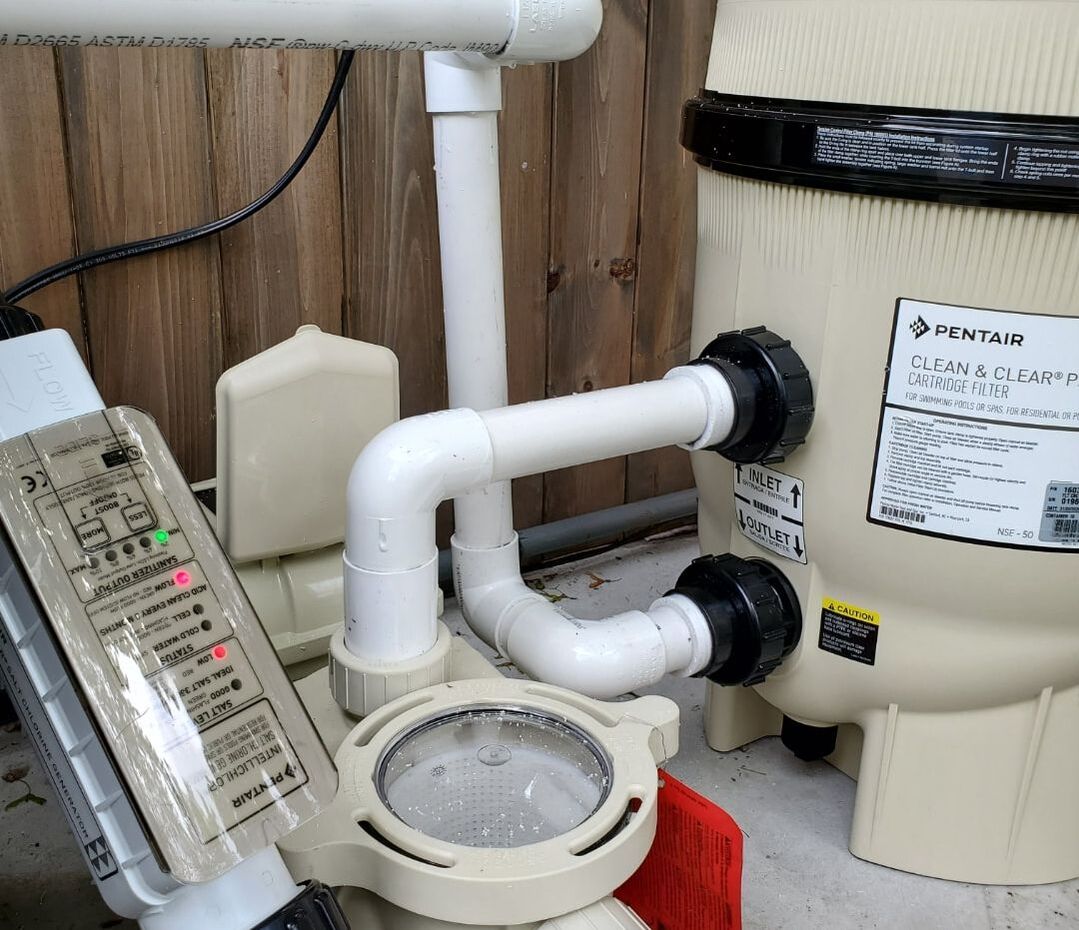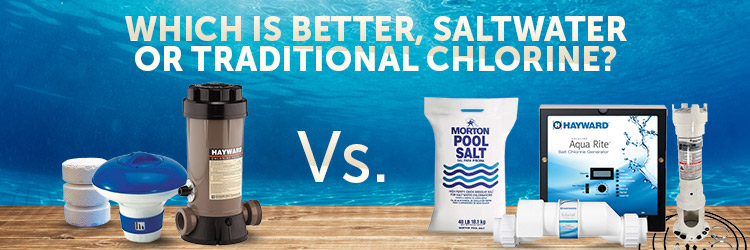There are a few ways to tell if a pool is saltwater or chlorine. One way is to look at the color of the water. Saltwater pools tend to have a bluish tint, while chlorine pools often have a greenish tint.
Another way to tell is by smelling the water. Saltwater pools often have a salty smell, while chlorine pools may have a chemical smell. Finally, you can test the pH of the water.
Saltwater pools usually have a higher pH than chlorine pools.
- Check the pool‘s pH levels
- If the pH level is below 7, it’s likely a saltwater pool
- Take a sample of water from the pool and taste it
- If it tastes salty, it’s a saltwater pool
- Test the water for chlorine levels using a kit from your local hardware store or swimming supply store
- If the chlorine levels are low, it’s probably a saltwater pool
SALT WATER vs. CHLORINE POOL: Which One Is Better? | Swim University
How Do I Know If My Pool is Saltwater?
There are a few ways to tell if your pool is saltwater. One way is to look at the type of chlorine generator that is installed. If it is a saltwater chlorinator, then you can be sure that your pool is saltwater.
Another way to tell is by looking at the salinity reading on your pool test kit. If the reading is above 3000 ppm, then your pool is most likely saltwater.
How Can You Tell the Difference between Salt And Chlorine Pools?
It’s not always easy to tell the difference between salt and chlorine pools. Here are a few key differences:-Saltwater pools use salt to generate chlorine.
Chlorine pools use chlorine tablets or liquid chlorine.-Saltwater pools tend to have a softer feel than chlorine pools. This is because the salt doesn’t dry out your skin like chlorinated water can.
-Saltwater pools are easier on your eyes than chlorine pools. This is because the salt doesn’t irritate your eyes like chlorinated water can.-Saltwater pool systems are typically more expensive than chlorine pool systems.
Can a Pool Be Both Salt And Chlorine?
Yes, a pool can be both salt and chlorine. This is because salt chlorinators work by converting the salt into chlorine. The chlorine then kills the bacteria in the water.
Does a Saltwater Pool Smell Like Chlorine?
If you’ve ever been to a saltwater pool, you know that they don’t have that distinct chlorine smell like your typical chlorinated pool. But why is this?It all has to do with the way saltwater pools are sanitized.
Instead of using chlorine tablets or liquid chlorine, saltwater pools use a process called electrolysis. This process uses salt (sodium chloride) and water to create sodium hypochlorite, which is then used to disinfect the pool.While this may sound like it would make the pool water salty, it actually doesn’t.
The amount of salt added to the water is very small and not noticeable when swimming in the pool. In fact, most people can’t even taste the difference!So if you’re looking for a pool that doesn’t smell like chlorine, a saltwater pool is definitely the way to go!

Credit: www.swimpristine.ca
Disadvantages of Salt Water Pools
If you’re considering a salt water pool, there are a few things you should know about the disadvantages of these types of pools. While salt water pools have many benefits, including being easier on your skin and eyes and requiring less chlorine, they also have some downsides. Here are four disadvantages of salt water pools:
1. They Can Be Harder to MaintainWhile salt water pools don’t require as much chlorine as traditional pools, they can be harder to maintain. Salt water pools need to be regularly tested and balanced, and the pH levels need to be closely monitored.
If the pH level gets too high or low, it can corrode the pool’s surface or cause problems with the filtration system.2. They Can Be More Expensive to BuildSalt water pools can be more expensive to build than traditional chlorinated pools because they require special equipment, like a saltwater generator.
This upfront cost may deter some people from choosing a salt water pool over a traditional one.3. The Salt Can Damage Pool EquipmentThe high concentration of salt in salt water pools can damage pool equipment if it’s not properly maintained and cared for.
Over time, the salt can corrode metal parts and break down plastic components. This damage can shorten the lifespan of your pool’s pumps, filters, and other mechanical parts. It’s important to talk to your pool builder or contractor about how best to care for your pool’s equipment if you choose a salt water model.
Conclusion
If you’re not sure whether your pool is saltwater or chlorine, there are a few things you can look for. First, check the pH level of the water. If it’s around 7.4, that’s an indication that it’s saltwater.
Another clue is the presence of a salt cell, which is usually located near the filter. Finally, take a close look at the pool itself. Saltwater pools tend to have a bluish tint, while chlorine pools have a greenish tint.
